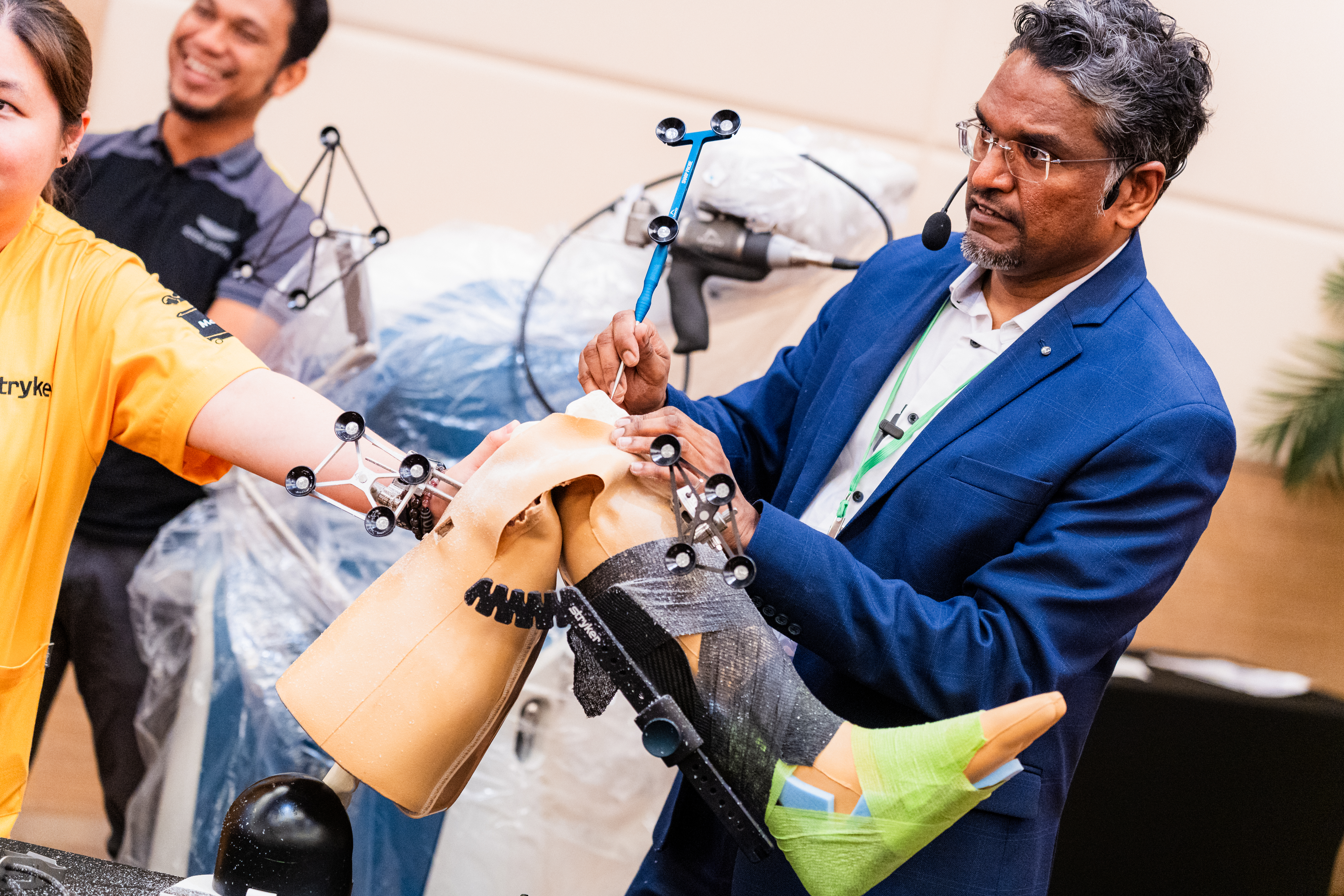Better Precision, Effective Procedures via Robotic-Assisted Surgeries
13 June 2024

Robotic-assisted knee replacement surgeries are the latest technological advancement which allows for better precision and effective procedures for significantly improved patient outcomes.
Consultant Orthopaedic and Trauma Surgery, Arthroplasty, Robotic Surgeon at Sunway Medical Centre, Sunway City (SMC), Dr Jeffrey Jaya Raj said the most common misconception regarding robotic-assisted surgeries is that it is wholly operated by robots without the ‘human touch’.
“Obviously no, we as surgeons control everything, from planning to key-in instructions to the robot and then the robot assists in the execution of the surgery. It also automatically turns off if it goes beyond the specified haptic boundary,” he told Bernama in an exclusive interview recently.
He also said that robotic-assisted surgery has significantly higher accuracy and causes less soft tissue disruption, in comparison to conventional surgical methods where the procedure measures the implants based on the rough size of a patient’s knee.
Dr Jeffrey said the accuracy and precision of robotic-assisted surgery enable surgeons to replicate the patient’s knee based on their native knee morphology. 
“Conventional methods are a bit different because we use three types of jigs and stylus. Sometimes it can result in a bit of variation in replicating the patient’s original knee.
“On the other hand, the robotic system has a double verification mechanism and it confirms the procedures along with the computerised tomography (CT) scan fed to the robot software.
“Hence any markings of the bone or morphology are double checked and confirmed by the software itself. This is where the precision comes from,” he said.
He added that robotic technology is imperative in ensuring the knee stays balanced after surgery so that the patient walks straight, instead of the knee bent inwards or outwards.
“Each individual has different sizes of bones, and we shape match the implants and cut the bone to match the shape of the implant.
“Robotic technology makes accurate cuts. Ultimately our aim is to give a balanced, stable, pain-free knee,” he said.
Dr Jeffrey said that although any patient with knee osteoarthritis is a suitable candidate for robotic knee replacement, however, in the case of hip fractures such as neck of femur fractures, treatment is emergent and hence it will be carried out non-robotically.
Meanwhile, he expressed his anticipation for the future of robotic-assisted surgeries as technology continues to evolve to benefit patients, which could increase the longevity of knee implants and a shorter hospital stay.
“Less soft tissue disruption leads to faster healing, lesser pain, better outcomes and shorter hospital stay.
“Most post-surgical patients receiving robotic-assisted surgeries can walk as early as the next day or the same evening,” he said.
SMC organised an Infinite Precision, Infinite Possibilities: Robotics in Joint Replacement Surgery live demonstration here recently.
The half-day hybrid event was attended by over 360 participants and featured esteemed Malaysian robotic orthopaedic specialists including Dr Jeffrey who performed a live demonstration during the half-day hybrid event.
The session has ignited discussion, dispelled myths and raised awareness on the future of orthopaedic care via robotic procedures
SMC has performed over 2,400 robotic surgeries, including more than 1,000 robotic assisted joint replacement surgeries, with a team of 26 highly skilled, robotic-trained surgeons from various disciplines
SMC was the first in the country to install Mako SmartRobotics and Rosa Knee System. SMC was also the first in the country to perform bilateral robotic total hip replacement with Mako SmartRobotics in 2021, and was also the first in Southeast Asia to perform robotic partial knee replacement with Rosa Knee System in 2023.
Source: BERNAMA
Back




